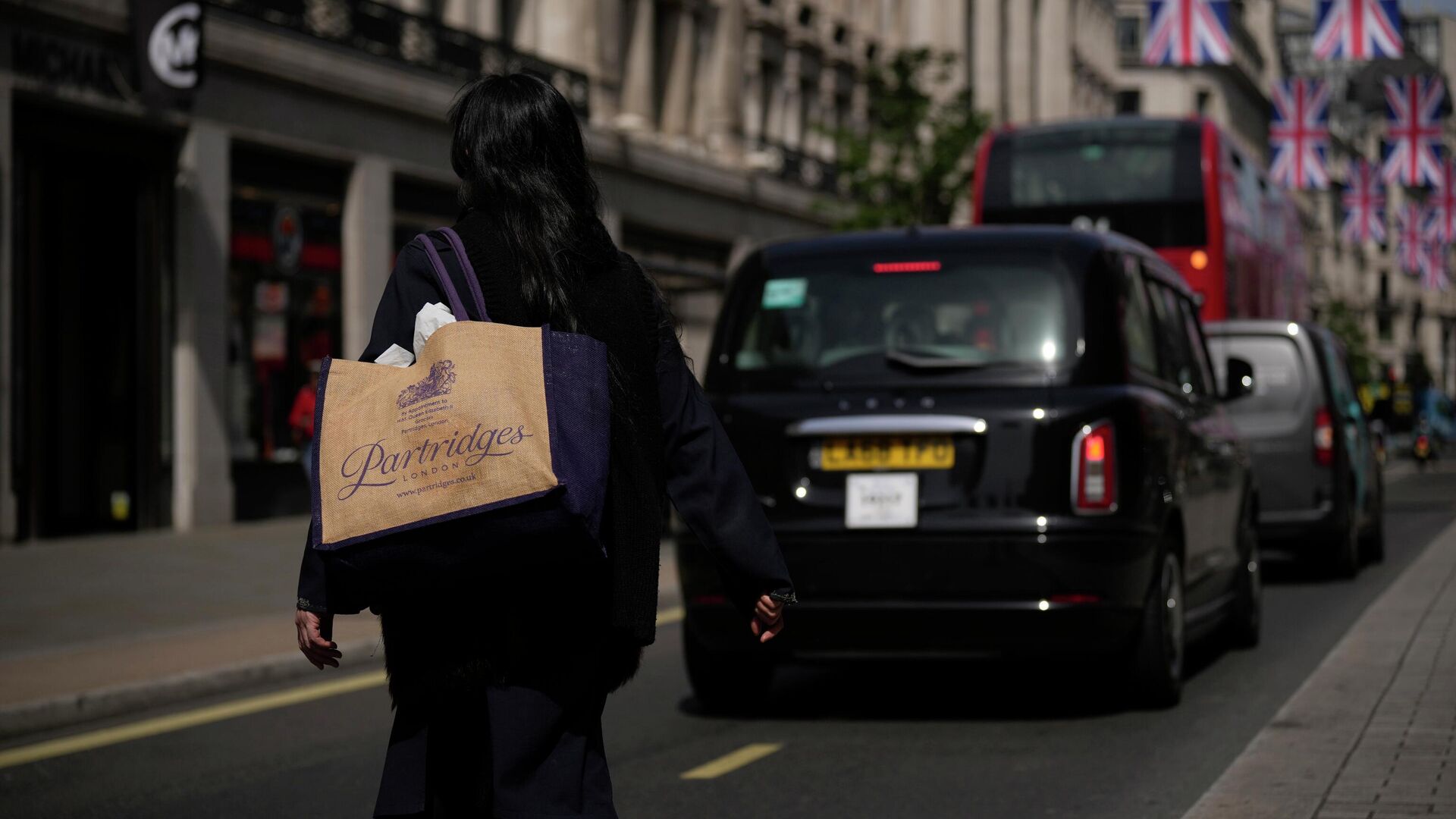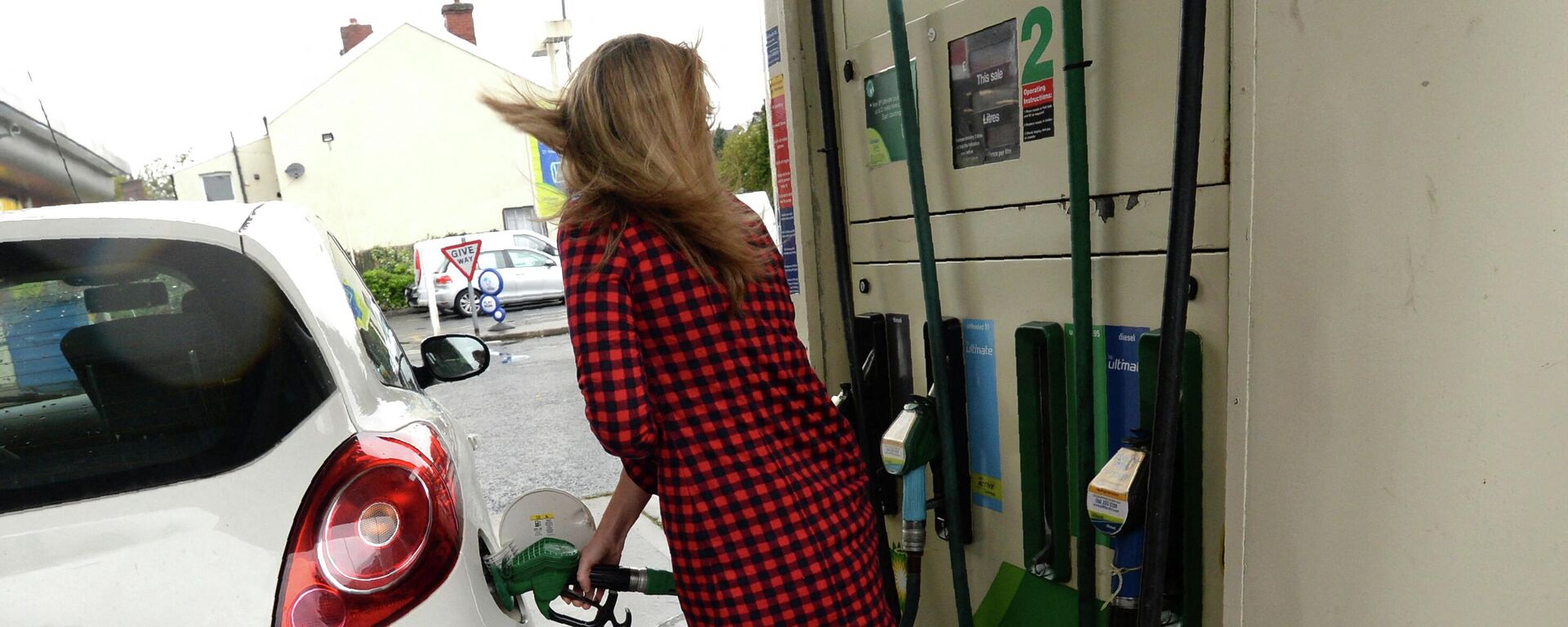https://sputnikglobe.com/20220705/priti-patel-advocates-imprisonment--unlimited-fines-to-tackle-fuel-protests-in-uk---report-1096961163.html
Priti Patel Advocates 'Imprisonment & Unlimited Fines' to Tackle Fuel Protests in UK - Report
Priti Patel Advocates 'Imprisonment & Unlimited Fines' to Tackle Fuel Protests in UK - Report
Sputnik International
Hailed by the UK government as "landmark reforms to better protect the public and make our streets safer", the Police, Crime, Sentencing and Courts Act came... 05.07.2022, Sputnik International
2022-07-05T07:57+0000
2022-07-05T07:57+0000
2023-05-28T15:20+0000
priti patel
fuel
united kingdom (uk)
https://cdn1.img.sputnikglobe.com/img/07e6/07/05/1096961581_0:160:3073:1888_1920x0_80_0_0_cfd7f74d1a3b08586610faee304e0d38.jpg
UK Home Secretary Priti Patel has urged police to wield tough new powers to tackle non-violent demonstrations and eradicate the gridlock on motorways across the UK caused by so- called “go-slow” protests, reported British newspaper The Daily Telegraph.At least 13 protesters were arrested on Monday for driving too slowly and blocking roads. They were demonstrating for a cut in fuel duty, and most arrests took place on the M4. Drivers also protested on the M54, M62, A38 and several other roads.The new measures came into effect on 28 June as part of a major overhaul of the sentencing laws.Echoing this stance, a senior government source was cited by The Times as saying: “The Government has given the police a lot of powers to deal with this sort of stuff and we are looking to them to use it. We want to know what they are going to do about it.”‘Attack on Right to Protest’What was labeled by critics as a “deeply authoritarian” Police, Crime, Sentencing and Courts Bill was passed on 26 April by the House of Lords and marked the end of months of fierce debate from across Parliament and the public.The Bill was touted by the government as equipping police with the “powers and tools they need to combat crime while overhauling sentencing laws to protect the public and keep serious sexual and violent offenders behind bars for longer”.In effect, the changes significantly widen the range of situations in which the Met Police can wade in on protests, including being able to clamp down on “noisy” protests. The Act extends the buffer zone around parliament, restricts traveler encampments, and one of its clauses also gives police powers to ban disruptive one-man protests.The government has also increased penalties for protesters. "Willful obstruction of the highway" was previously punishable by a maximum fine of £50, but now carries a prison sentence of up to six months and/or an unlimited fine.One of the aims of the legislation was to restrict so-called “static protests” in response to the activities of Extinction Rebellion, that began in 2018 ostensibly to raise awareness of the climate crisis, and Insulate Britain. The environmental protests of the action groups blocked streets and bridges in London.Human rights group Liberty has described the Act as "a concerted attack on the right to protest".Prime Minister Boris Johnson said his government was delivering on its commitment to make streets safer.“We have changed the law so that dangerous criminals are given the sentences they deserve and are kept behind bars, and we are backing the police with the powers they need to keep us safe. We are well on our way to getting 20,000 more police officers, and we will continue to support victims seeking justice and bear down on crime so that everyone… has the security and confidence they deserve."Fuel Tax ProtestsAs for Monday’s protests, they were understood to have been organized via social media under the slogan ‘Fuel Price Stand Against Tax’.The action came as the latest figures released by Experian showed the average price of petrol had reached a new high of 191.5p per liter on Sunday. The average price of diesel was 199.0p per liter. According to RAC fuel spokesman Simon Williams, the government needs to “take action” and cut fuel duty again or slash VAT to help “hard-pressed drivers and businesses”.In the wake of the protests, UK Chancellor of the Exchequer Rishi Sunak promised to consider calls for a “more substantial” fuel duty cut after the 5p-per-liter reduction in March.
https://sputnikglobe.com/20220704/uk-fuel-price-campaigners-arrested-in-motorway-go-slow-protests-1096932028.html
united kingdom (uk)
Sputnik International
feedback@sputniknews.com
+74956456601
MIA „Rosiya Segodnya“
2022
News
en_EN
Sputnik International
feedback@sputniknews.com
+74956456601
MIA „Rosiya Segodnya“
Sputnik International
feedback@sputniknews.com
+74956456601
MIA „Rosiya Segodnya“
priti patel, fuel, united kingdom (uk)
priti patel, fuel, united kingdom (uk)
Priti Patel Advocates 'Imprisonment & Unlimited Fines' to Tackle Fuel Protests in UK - Report
07:57 GMT 05.07.2022 (Updated: 15:20 GMT 28.05.2023) Hailed by the UK government as "landmark reforms to better protect the public and make our streets safer", the Police, Crime, Sentencing and Courts Act came into force on 28 June. Human right groups have labeled it "a concerted attack on the right to protest".
UK Home Secretary
Priti Patel has urged police to wield tough new powers to tackle non-violent demonstrations and eradicate the gridlock on motorways across the UK caused by so- called “go-slow” protests, reported British newspaper The Daily Telegraph.
At least 13 protesters were arrested on Monday for driving too slowly and blocking roads. They were demonstrating for a cut in fuel duty, and most arrests took place on the M4. Drivers also protested on the M54, M62, A38 and several other roads.
“Through our Police, Crime, Sentencing and Courts Act, we have given the police a wealth of powers to deal with disruptive and damaging protests, including imprisonment and unlimited fines for those blocking a highway – actions which inflict further pain on those affected by rising prices,” a Home Office source was cited as saying.
The new measures came into effect on 28 June as part of a major overhaul of the sentencing laws.
“The Home Secretary would encourage and support the police to make use of all the powers available to them. Forces need to move people on. These protests are blocking people from getting to work and from carrying out other vital journeys - this is not about whether you believe in the cause or not,” added the Home Office source.
Echoing this stance, a senior government source was cited by The Times as saying: “The Government has given the police a lot of powers to deal with this sort of stuff and we are looking to them to use it. We want to know what they are going to do about it.”
‘Attack on Right to Protest’
What was labeled by critics as a “deeply authoritarian”
Police, Crime, Sentencing and Courts Bill was passed on 26 April by the House of Lords and marked the end of months of fierce debate from across Parliament and the public.
The Bill was touted by the government as equipping police with the “powers and tools they need to combat crime while overhauling sentencing laws to protect the public and keep serious sexual and violent offenders behind bars for longer”.
In effect, the changes significantly widen the range of situations in which the Met Police can wade in on protests, including being able to clamp down on “noisy” protests. The Act extends the buffer zone around parliament, restricts traveler encampments, and one of its clauses also gives police powers to ban disruptive one-man protests.
The government has also increased penalties for protesters. "Willful obstruction of the highway" was previously punishable by a maximum fine of £50, but now carries a prison sentence of up to six months and/or an unlimited fine.
One of the aims of the legislation was to restrict so-called “static protests” in response to the activities of Extinction Rebellion, that began in 2018 ostensibly to raise awareness of the climate crisis, and Insulate Britain. The
environmental protests of the action groups blocked streets and bridges in London.
Human rights group Liberty has described the Act as "a concerted attack on the right to protest".
“Protest is not a gift from the state, it is a fundamental right… Protests are by nature ‘noisy’ and ‘disruptive’. It is very worrying the police have already started enforcing the broad powers within the Policing Act in such a heavy-handed and punitive way,” Jun Pang, policy and campaigns officer at Liberty said.
Prime Minister Boris Johnson said his government was delivering on its commitment to make streets safer.
“We have changed the law so that dangerous criminals are given the sentences they deserve and are kept behind bars, and we are backing the police with the powers they need to keep us safe. We are well on our way to getting 20,000 more police officers, and we will continue to support victims seeking justice and bear down on crime so that everyone… has the security and confidence they deserve."
As for Monday’s
protests, they were understood to have been organized via social media under the slogan ‘Fuel Price Stand Against Tax’.
The action came as the latest figures released by Experian showed the average price of petrol had reached a new high of 191.5p per liter on Sunday. The average price of diesel was 199.0p per liter. According to RAC fuel spokesman Simon Williams, the government needs to “take action” and cut fuel duty again or slash VAT to help “hard-pressed drivers and businesses”.
In the wake of the protests, UK Chancellor of the Exchequer Rishi Sunak promised to consider
calls for a “more substantial” fuel duty cut after the 5p-per-liter reduction in March.




